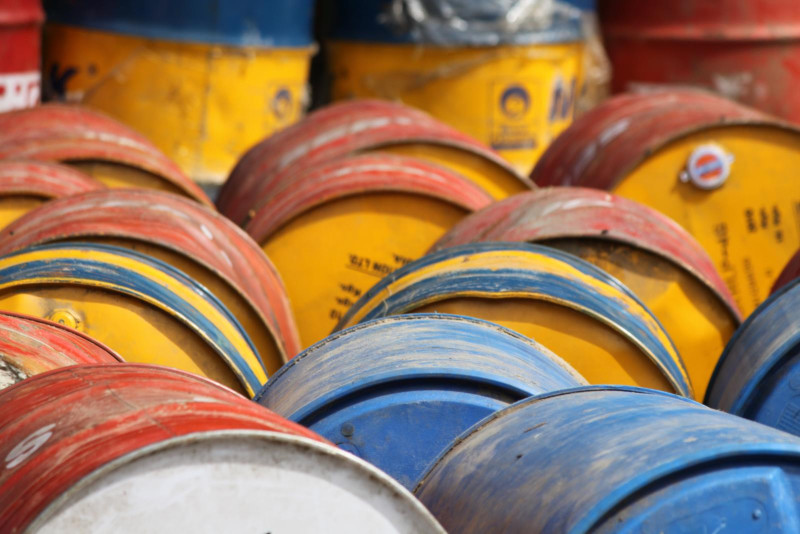Last week, two of the world’s biggest oil exporters agreed on production cuts, aiming to raise the price per barrel of oil.
Russia and Saudi Arabia agreed to slash production by 1 million barrels per day and 300,000 barrels per day, respectively – an extension of previous cuts that will now last through the end of the year. The move comes amid lagging demand in some parts of the world, as well as a summer of sub-$100 barrel prices.
Matt Smith, energy analyst for Kpler, spoke with the Standard about the potential political implications and what consumers can expect following the cuts.
This transcript has been edited lightly for clarity:
Texas Standard: Well, you have Saudi Arabia and Russia teaming up apparently on these production cuts. Am I misreading that, or did they coordinate all of this?
Matt Smith: Well, if we take a step back, right, so they they have really influenced prices over the last few months here. So this latest announcement is one of a series of production cuts. So OPEC Plus, the group of all these different countries, announced cuts back in June. And Saudi Arabia at that time committed to a sweetener of an additional 1 million barrels per day. And they said they’d do that for July and they called it a Saudi lollipop, basically.
And so they then extended this cut through August and then through September. And they’ve come out and said that they’re going to extend it through year end here. Now, in terms of prices, in late June, crude prices were close to their lows for the year, around $67. But they’ve risen since, and now we’re sort of $20 a barrel higher. The reason they’ve done this is because China has continued to disappoint.
What do you mean, China has continued to disappoint? They’re not buying as much oil as they thought, or what?
Right, and its economy has been much slower than people expected. And so essentially, Saudi Arabia has had to cut its production and take exports off the markets to essentially balance it again. And so that’s kind of where we’re at here.
So what’s the objective? Are they trying to reach a certain price point with these reductions in production?
Yeah. So we believe Saudi Arabia is willing to take a price in the mid $80s to the low $90s, essentially to meet its budgetary needs. But then that’s why they extended those cuts through year end to buoy those prices. But it’s a very dangerous game that they’re playing here. You know, it’s exceedingly difficult to balance a global market where demand and supply is like 100 million barrels per day.
One thing to bear in mind: We haven’t talked about Russia yet, but Russia is essentially just along for the ride here in terms of these high prices. So, yes, Russia is starting to cut production, and we’re seeing their exports really dropping in recent months, but that’s been related to a lack of buyers due to sanctions. It can only sell its crude to a very limited number of countries. And so as India has gone through monsoon season and refinery maintenance, it means they’re buying less. So Russia has not been able to push out as many barrels, but it looks as if they’re cutting production as well.
I think what stands out to a lot of folks when they hear this tale is that you have what is considered to be, formally speaking, an ally in Riyadh and that you have an outright foe in Moscow. And they’re now bound together over these oil prices and trying to get them to a particular point. Before we get into the politics of that, though, what sort of impact does this have on consumers here in the U.S.? And of course, I’m thinking about Texas a whole lot here.
So that’s the thing: When we’re talking about Saudi Arabia and Russia, they are these big producers, the biggest producers in the world apart from the U.S. But then you have the consuming nations as well, which want that lower price, which is in opposition to the producers.
And so there is that sweet spot right about this kind of mid-$70s, $80 level where prices at the pump are not pushing above $4 a gallon. Everybody can afford it, whereas it’s high enough to incentivize production. When you get prices pushing that much higher as they are here, yes, it may well be positive for Texas oil production, but we’re all going to start to feel the pocketbooks here.
Where does this leave us at this juncture? I mean, are we looking at the possibility that we could see prices for a barrel of oil rise above that $100 mark?
It shouldn’t, but it’s a dangerous game that Saudi Arabia is playing here. You know, we are passing through the peak demand season of the year here, and then we’re entering a low period of demand and refinery maintenance. And so we may see prices average around this level.
But then that begs the question, what does Saudi Arabia do at the end of this year if prices are still not high enough where they want them to be? Do they keep taking barrels off the market to buoy prices, or do they just unwind those production cuts?
Well, there’s a backdrop here, and that’s the political one. The current U.S. administration is very much fixated on prices at the pump – and increasingly so, one would imagine, as we enter the height of election season. Anything the Biden administration can do to keep prices down?
Not really. So the administration decided to do an emergency oil release last year of 180 million barrels from the strategic reserve in the immediate aftermath of the start of the Russia-Ukraine war. And that was an attempt to keep a lid on oil prices, ergo a lid on prices at the pump. But while it definitely worked, that U.S. strategic reserve has now been drawn down by about 40% since the start of last year to about 250 million barrels.
So the administration has said that it will look to refill that SPR with at least some of the barrels it has drawn down in the last year and a half. But if they really want to keep prices in check, they could release more. But if they were to do that, they will come under considerable criticism.















